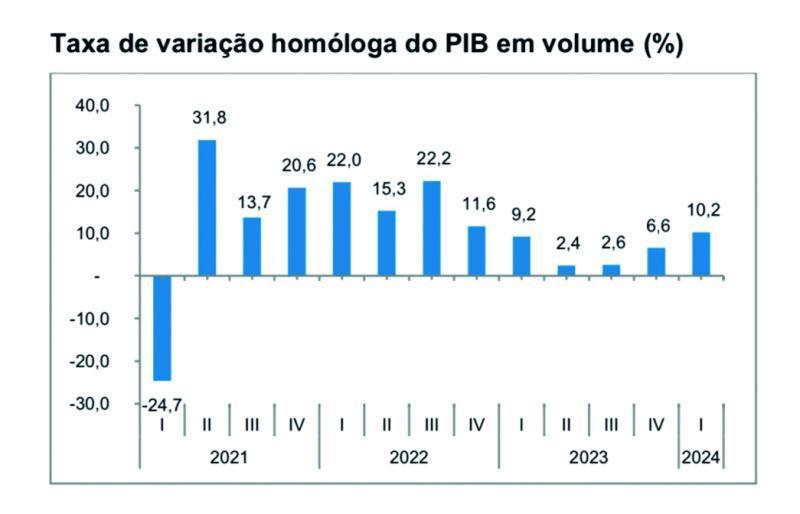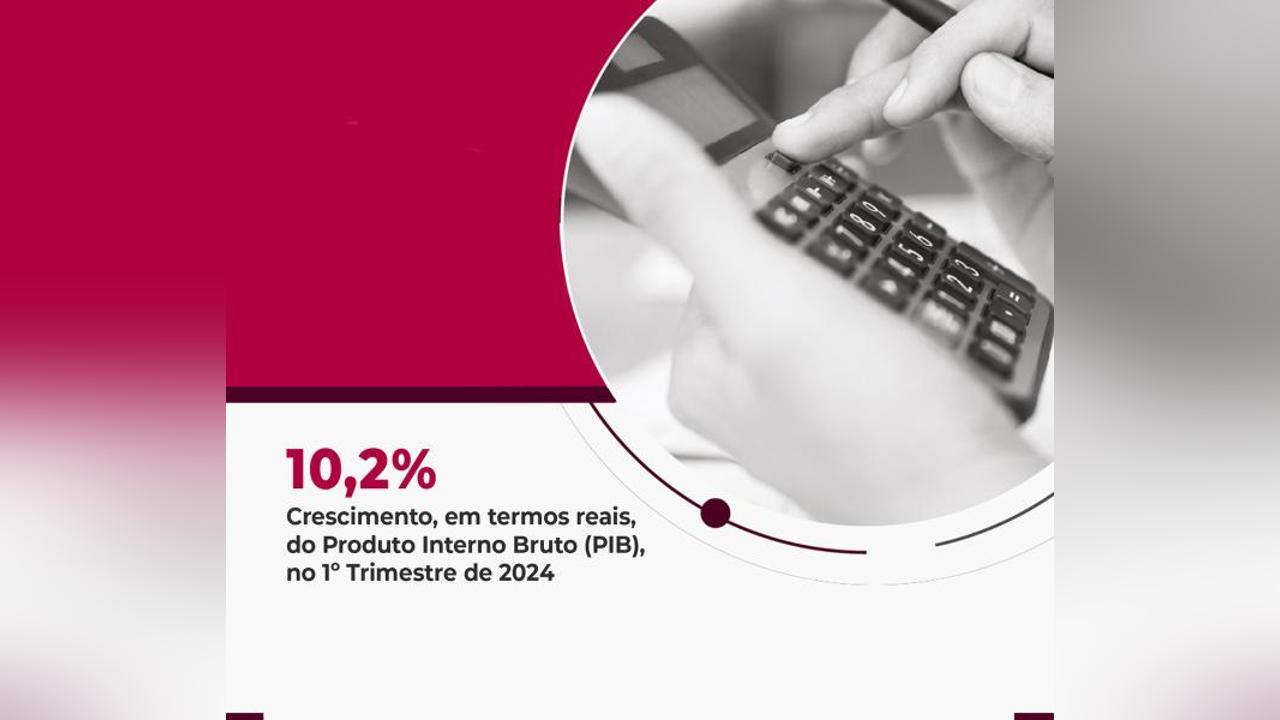Africa-Press – Cape verde. The National Statistics Institute (INE) announced this Monday that the national Gross Domestic Product (GDP) registered an increase of 10.2% in real terms in the first quarter of 2024, compared to the same period of the previous year. This rate is 3.6 percentage points (pp) higher than that recorded in the fourth quarter of 2023.
According to INE data, Gross Value Added (GVA) at basic prices grew 10.4% in the first quarter, 2.7 pp above the previous quarter. Agricultural GVA increased 18.2%, contributing 0.8 pp to GDP growth.
Manufacturing Industries recorded an increase of 12.6%, compared to just 0.1% in the previous quarter, contributing 0.6 pp to GDP.

In Construction there was a 4.5% decrease in GVA, resulting in a negative contribution of 0.2 pp to GDP growth.
Trade showed an increase of 7.8%, compared to 1.0% in the previous quarter, contributing 0.9 pp to GDP.
“Compared to the same quarter of 2023, the GVA of the Commerce sector showed, in the 1st quarter of 2024, a positive year-on-year variation of 7.8% in volume (+1.0% in the previous quarter), translating into a contribution to the positive year-on-year variation of GDP of 0.9 pp”, it reads.
Both Transport, Storage and Accommodation and Catering showed significant variations, with increases of 26.5% and 33.8% respectively, contributing 2.9 pp and 2.7 pp to GDP growth.
“The GVA of the Public Administration branch had, in the 1st quarter of 2024, a negative year-on-year variation of 1.4% (8.6% in the 4th quarter of 2023), contributing -0.1 pp to the total variation in GDP growth. In turn, Taxes Net of Subsidies on Products, in real terms, showed a positive year-on-year variation of 9.1% in the 1st quarter, contributing 1.3 pp to the total variation in GDP”, it reads.
Consumption and investment
Final consumption, including private and public consumption, increased by 10.5%. Private consumption grew by 13.1%, while public consumption increased by 0.6%.
On the other hand, investment recorded a negative variation of 40.8%, a worsening compared to the decrease of 33.2% in the previous quarter.
According to the INE, exports of goods and services grew by 13.5%, with exports of services increasing by 19.3% and exports of goods by 0.3%. Imports of goods and services decreased by 6.0%, with a 7.0% drop in imports of goods and 2.1% in imports of services.
GDP expected to remain stable
It should be noted that in May, the Bank of Cabo Verde (BCV) announced that GDP growth is expected to remain stable at 5% in 2024, increasing to 5.4% in 2025, as well as a “slight” increase in its reference interest rates.According to data from the Monetary Policy report of the Bank of Cabo Verde, in 2023, the external context of the national economy proved to be “less favorable”, evidenced by the moderation in the growth of global economic activity and that of the main trading partners, namely the euro area and the United Kingdom.
Thus, real GDP growth in 2024 is expected to stabilize, maintaining the same pace as in 2023, taking into account the dissipation of the positive knock-on effects of the recovery process from the pandemic crisis, the still tenuous economic situation of the main economic partners, more restrictive conditions in the supply of domestic credit and the uncertainty arising from geopolitical tensions.
However, the Central Bank highlighted that, despite some volatility being expected in the prices of energy products due to geopolitical issues, it anticipates that, for 2024 and 2025, the inflation rate will maintain a downward trajectory, reaching levels more consistent with the objective of price stability.
According to the data, average annual inflation is expected to fall to 1.2% in 2024 and 1% in 2025, favored by the expectation of a fall in the prices of energy and non-energy raw materials on the international market, by the easing of supply constraints and pressures arising from the costs of production factors, as well as by some impact of the restrictive tendency of monetary policy.
On the other hand, the BCV believes that, in 2024, the current account deficit will evolve less positively, reflecting the moderation in international external tourist demand and in revenues from tourism and air transport, as well as the decrease in remittances from emigrants, which could reach 3.4% of GDP.
For More News And Analysis About Cape verde Follow Africa-Press






